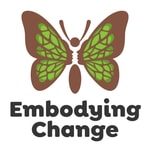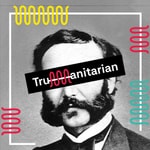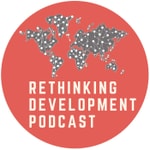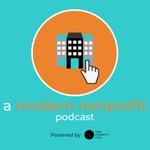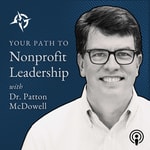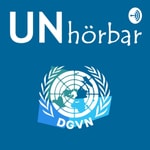The Power Shift: Decolonising Development – Détails, épisodes et analyse
Détails du podcast
Informations techniques et générales issues du flux RSS du podcast.
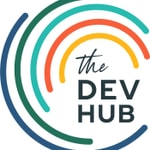
The Power Shift: Decolonising Development
Kate Bird
Fréquence : 1 épisode/19j. Total Éps: 46

The Power Shift: Decolonising Development podcast brings together activists, practitioners and thinkers to join a wide-ranging conversation on decolonisation, where they share ideas and identify tools for practical action. If you’d like to know more about decolonising development – and what it means in practice, or you would love to change the way you do your work in the development sector, then this is the right place.
Classements récents
Dernières positions dans les classements Apple Podcasts et Spotify.
Apple Podcasts
🇫🇷 France - socialSciences
18/07/2025#95🇫🇷 France - socialSciences
17/07/2025#77🇫🇷 France - socialSciences
16/07/2025#63🇫🇷 France - socialSciences
15/07/2025#51🇫🇷 France - socialSciences
14/07/2025#36🇬🇧 Grande Bretagne - socialSciences
11/07/2025#97🇬🇧 Grande Bretagne - socialSciences
10/07/2025#67🇬🇧 Grande Bretagne - socialSciences
09/07/2025#40🇬🇧 Grande Bretagne - socialSciences
16/06/2025#100🇬🇧 Grande Bretagne - socialSciences
15/06/2025#82
Spotify
Aucun classement récent disponible
Liens partagés entre épisodes et podcasts
Liens présents dans les descriptions d'épisodes et autres podcasts les utilisant également.
See all- https://twitter.com/amiera_tales
3 partages
- https://twitter.com/DecolonizWealth
3 partages
- https://twitter.com/stevemurigi?lang=en
2 partages
Qualité et score du flux RSS
Évaluation technique de la qualité et de la structure du flux RSS.
See allScore global : 62%
Historique des publications
Répartition mensuelle des publications d'épisodes au fil des années.
Operationalising equitable compensation through principles of fairness and transparency. Kim Kucinskas and Ishbel McWha-Hermann interviewed.
Saison 1 · Épisode 37
vendredi 21 juin 2024 • Durée 50:53
In this week’s episode, we speak to Kim Kucinskas and Dr. Ishbel McWha-Hermann about equity in compensation and fair reward in international development organisations. We talk about the Equitable Compensation Playbook, which organisations can use as a benchmark to reflect on their approaches to compensation, as well as Project Fair.
Kim and Ishbel tell us about equitable compensation as being rooted in challenging Western ideologies around pay. The discourse around decolonisation and shifting power is also being integrated into conversations around compensation and power and value.
We dive into the specifics of operationalising change in equitable compensation and pay in INGOs in the development and humanitarian sectors.
Kim Kucinskas is the Technical Director, Organizational Transformation at Humentum, a global nonprofit that unlocks the strategic power of operating models for social good organizations. She helps individuals and organizations who are on a journey towards greater equity identify, understand, and operationalize transformation. Kim’s priority is to support individuals to be more effective in their work and organizations to be prepared for the future. To achieve results, she creates connections between strategy and practical operations by building networks, facilitates co-creation, and supports organizations through consultancies. This is the case with the TIME (Transforming INGO Models for Equity) initiative, a case study in action of power shift where Kim acts as Project Director. In another example of connecting the dots between strategy and practical solutions, Kim led an 18-months long compensation working group of nonprofit compensation practitioners, which resulted in the co-created Equitable Compensation Playbook.
Dr. Ishbel McWha-Hermann is an Associate Professor in international HRM at the University of Edinburgh Business School, Scotland. She uses psychological research to enhance social justice and fair reward in organisations, particularly in international work contexts. Ishbel is Founder and Director of Project Fair, which brings together HR and reward managers from INGOs, to develop research based pathways to fairer reward policies and practices. She has undertaken consultancy and provided expert advice to numerous international organisations, including the United Nations.
If you’re interested to find out more about their work, take a look here:
- Project Fair
- Ishbel McWha Hermann LinkedIn
- Project Fair LinkedIn
- Kim Kucinskas LinkedIn
- Humentum | LinkedIn
- Humentum (@humentum_org)
Relevant resources:
Enacting an individual and collective Pledge for Change. Kate Moger and Sidhee Patel interviewed.
Saison 1 · Épisode 36
mercredi 5 juin 2024 • Durée 28:34
In this week’s episode, we talk to Kate Moger and Sidhee Patel from Adeso’s Pledge for Change initiative. The three pledges focus on equitable partnerships, authentic storytelling, and influencing wider change. The Pledge consists of a community of 13 INGOs who commit to working towards the shared objectives.
They talk about the importance of making public commitments to change both individually as leaders and collectively on behalf of organisations.
We discuss the abundance mindset when it comes to situating new initiatives and projects in the international development space, and the importance of contributing resources and knowledge.
Kate Moger is Global Director of Pledge for Change. Prior to joining Adeso in July 2023, Kate spent over two decades working in humanitarian contexts, most recently as IRC’s Regional Vice President for the Great Lakes and Central Africa, supporting Burundi, Cameroon, Chad, the Central African Republic, the Democratic Republic of Congo, and Tanzania. Previously she was IRC’s Deputy Regional Director for West and Central Africa and Country Director in Mali. Between 2003 and 2013, Kate held a variety of leadership roles with Save the Children in South Sudan, DRC, and Cote d’Ivoire, having begun her humanitarian work in protection services with refugee and asylum-seeking children in the UK. She gained development and peacebuilding experience with Sense International and International Alert, before which she taught English in Japan, and established a start-up travel agency in Russia.
Sidhee Patel works as a Program Officer for the Pledge for Change 2030 Initiative. She previously worked in administrative support, but she is now actively learning and navigating the humanitarian and development program sector. Sidhee has a bachelor’s degree in International Relations and has recently completed the 1st cohort of the Development Hub's Skill Share Program: Decolonizing Development and Humanitarian Action. She is dedicated to social justice and empowering the Global South community in the development and humanitarian aid ecosystem.
If you’re interested to find out more about Kate’s or Sidhee’s work, take a look here:
Recent work:
- PLEDGE FOR CHANGE 2024 ANNUAL RETREAT REPORT
- Toward a Decolonised International Cooperation Declaration
Relevant resources:
Decolonising consultancy: building a rooted network of ethical values-driven consultants. Kate Newman (INTRAC) interviewed.
Saison 1 · Épisode 27
mercredi 31 janvier 2024 • Durée 44:51
In this week’s episode, we talk to Kate Newman, INTRAC CEO, about the organisation’s shift in order to respond to the changes happening in the international development sector. She talks of realising that rather than exclusively responding to each organisation’s needs, they realised they could be more impactful by taking on an ecosystem approach.
INTRAC’s goal is to build a network of ethical values-driven consultants, where local context and lived experience is prioritised. This strengthens civil society and promotes locally-led development, as well as empowering consultants within their work. Kate also speaks about understanding decolonisation as a verb, as well as a commitment to processes of critical reflection, learning and unlearning.
Kate has worked in international development for over 25 years, as part of local civil society in Mexico, for large international NGOs (ActionAid and Christian Aid), as an independent consultant and an academic; she joined INTRAC as CEO in April 2022. Throughout all these roles she has championed the importance of participatory and rights-based approaches; focused on understanding and shifting power, listening to, and learning from the knowledge, insights, perspectives and aspirations of people living in poverty, collaborating to ensure these knowledges are influential for development policy and practice. She describes herself as a feminist and anti-racist and works to ensure her leadership approach builds from these commitments.
If you’re interested to find out more about Kate’s work, take a look here:
Relevant resources:
Decoloniality as a way of being, and why language matters. Allan Moolman interviewed.
Saison 1 · Épisode 26
mercredi 17 janvier 2024 • Durée 42:32
In this week’s episode, we talk to Allan Moolman, a South Africa-based staff member of a leading INGO, who tells us about his organisation's development of a decolonial partnership strategy. We focus on the power relations present in language, resource allocation, and local decision-making.
The decolonial partnership strategy questions the internal power structures present within its organisational structure and procedures, as well as externally looks at relationships with the partners who locally deliver projects.
Allan Moolman understands decolonial practice as “a way of being in the world”, rather than a goal to complete and move on. He emphasises the importance of community, building space to engage new ideas, and questioning language hierarchies in development projects.
Allan is currently the Interim Head of Partnerships for Oxfam GB with the responsibility for the implementation of the Oxfam GB decolonial Partnerships Strategy. He has worked for Oxfam since 2007 in a number of roles including that of Country Director in South Africa (his country of origin) and as Head of Programme is Tanzania. Prior to joining Oxfam, Allan worked in a number of local non-governmental and community based organisations in South Africa. Allan’s work in programme design, management and strategy has always included a strong emphasis on power and the need to transform power relations at the interpersonal, organisational and sectoral level. He holds no formal qualifications in development.
If you’re interested to find out more about Allan’s work, take a look here:
Relevant resources:
- Duvisac, S. (2022) Decolonize! what does it mean?, Oxfam.
- Green, D. (2020) How to decolonise International Development: some practical suggestions, Oxfam: From Poverty to Power.
- Oxfam GB (2023) Inclusive Language Guide, Oxfam Policy & Practice.
- MST Brazil (Landless Worker’s Movements): https://www.mstbrazil.org/content/what-mst
Tackling extreme poverty through locally led development at BRAC. Asif Saleh interviewed.
Saison 1 · Épisode 25
mercredi 13 décembre 2023 • Durée 43:24
In this week’s episode, Asif Saleh speaks about BRAC as an INGO based in Bangladesh, which delves into understanding the underlying structural causes of poverty. Their work has focused on addressing the most pressing issues in a way that generates long-term stability.
Asif talks about circular learning and flows of knowledge which disrupt Global South/Global North dynamics. BRAC emphasises the scalability of models so that they can be applied to a variety of contexts focused on keeping costs low and engaging the community. We discuss the need to build capacity of Southern-based organisations, especially for climate change adaptation.
Asif Saleh is the Executive Director of BRAC. He brings a multi-sectoral experience in senior leadership roles in private, public, and non-government arenas, with a proven track record of effectively managing development programming, operational and financial sustainability, and building effective partnerships. Prior to joining BRAC, he was a policy specialist for the Prime Minister’s Office’s Access to Information (A2i) programme. He spent 12 years in Goldman Sachs in different fin-tech roles and institutional client sales in New York and London, ending his term there as an Executive Director. He has also worked in Glaxo Wellcome, IBM and Nortel. He is a non-resident fellow at the Center for Global Development in Washington, D.C. Mr Saleh chairs BRAC IT Services Limited, co-chairs BRAC Net, and is on the Board of BRAC Bank, bKash and edotco Bangladesh Ltd. He was recognised for his work by Asia Society’s Asia 21 programme in 2008, the Bangladeshi American Foundation in 2007, and was selected as an Asia 21 Fellow in 2012. He was selected as a Young Global Leader by the World Economic Forum in 2013. Mr Saleh holds a bachelor’s degree in computer science and an MBA from the Stern School of Business, New York University.
If you’re interested to find out more about Asif’s work, take a look here:
BRAC:
Asif Saleh:
Relevant work:
- BRAC Ultra Poor Graduation Initiative
- How are people adapting to survive at the climate frontlines? | On the ground with Asif Saleh | BRAC
Recommended resources:
- Development needs to change. Bangladesh can show us how | World Economic Forum
- “There was always that hunger and craving that I wanted to do something that was good for the soul.” | Common Purpose
- “We are not just dreaming of a better world – we are building it” Asif Saleh on BRAC’s 50th | The Good Feed
- We Need to Think Differently About Responding to Displacement | Centre for Global Development
- Shifting the power: why development dynamics need to change | Philanthropy Age/The Impact Room
Disrupting colonial legacies through reparations and community healing. Edgar Villanueva interviewed.
Saison 1 · Épisode 24
mercredi 29 novembre 2023 • Durée 40:02
In this week’s episode, Edgar Villanueva tells us about his book Decolonising Wealth, which was written in an effort to disrupt the flow of capital and to liberate resources for marginalised communities.
Edgar tells us about how indigenous worldviews can contribute to community healing and to repairing the harms caused by the philanthropic sector. We also talk about a framework called Repair to Philanthropy, where money reparations work to re-dress the harms inflicted on communities.
Edgar links the indigenous and Black struggles for racial and economic justice, and includes them in his approach to healing and reparations.
Edgar Villanueva (Lumbee) is an award-winning author, activist, and expert on issues of race, wealth, and philanthropy. Villanueva is the CEO of Decolonizing Wealth Project and Liberated Capital and author of the bestselling book Decolonizing Wealth (2018, 2021). He advises a range of organizations including national and global philanthropies, Fortune 500 companies, and entertainment groups on social impact strategies to advance racial equity from within and through their investment strategies.
Villanueva holds a BSPH and MHA from the Gillings Global School of Public Health at The University of North Carolina at Chapel Hill. He is an enrolled member of the Lumbee Tribe and resides in New York City. Publications including the New York Times, NPR, Teen Vogue, Vox, and Forbes magazine have featured Edgar and his work. Edgar has contributed to the Washington Post, the Advocate, Stanford Social Innovation Review, and more; he also shares more thoughts on racial justice, decolonization, and healing on his Medium page.
If you’re interested to find out more about Edgar’s work, take a look here:
- https://decolonizingwealth.com/
- LinkedIn: https://www.linkedin.com/in/edgarv/
- Twitter: @villanuevaedgar & @decolonizwealth
Recent work:
Relevant resources:
- Decolonizing Wealth Toolkit: https://decolonizingwealth.com/wp-content/uploads/2021/04/DWP_Toolkit_fnl2.pdf
Participatory grant-making & co-leadership at ADD International. Fredrick Ouko and Mary Ann Clements interviewed.
Saison 1 · Épisode 23
jeudi 16 novembre 2023 • Durée 51:05
In this week’s episode, Fredrick Ouko and Mary Ann Clements discuss ADD International’s organisational structure, especially their roles as co-CEOs and how representation matters. They tell us about modelling the team leadership in line with the lived experiences they want to represent and advocate for.
Through participatory grantmaking, they challenge the “colonisation of resources”, through which international funding goes mainly towards INGOs, rather than organisations of people with disabilities.
Fredrick and Mary Ann reflect on their personal roles as co-CEOs of ADD, and how their particular identities affect their working relationship. They also tell us about being conscious of ADD’s role as a ‘facilitator’ of participatory grant-making, rather than an ‘implementer’ of programs.
Fredrick Ouko is the Co-Chief Executive & Transformation Officer at ADD International. He is co-leading their work to become a participatory grant maker. Fredrick has worked to advance disability rights for the Open Society Initiative for Eastern Africa, and Light for the World Netherlands. He founded Action Network for the Disabled, a national disabled people’s organization in Kenya, and Riziki Source, a social enterprise using tech to improve employment access for disabled people. He is an Atlantic Fellow, was elected an Ashoka Fellow in 2012, and was shortlisted in 2016/2017 for the Africa Prize for Engineering Innovations.
Mary Ann Clements is the Co-Chief Executive & Transformation Officer at ADD International. She is a Feminist Writer, Facilitator, Activist & Coach committed to building a better world together without replicating patterns of injustice. Mary Ann co-convenes the Healing Solidarity, and her Embodying Change Coaching practice which centres a genuine solidarity that is focused on healing injustice.Previously, Mary Ann has worked as Executive Director at Able Child Africa, Regional Representative Basic Needs (East Africa), Chair of Lambeth Women’s Aid, and Assessor at Comic Relief.
If you’re interested to find out more about ADD’s work, take a look here:
- ADD website
- ADD information about becoming a participatory grant-maker
- Twitter: @maryannmhina, @FredrickOuko1
- Mary Ann LinkedIn
- Fredrick LinkedIn
Recent work:
Relevant resources:
USAID’s localization agenda: money, power and partnerships. Sarah Rose interviewed.
Saison 1 · Épisode 22
mercredi 1 novembre 2023 • Durée 36:30
In this week’s episode, Sarah Rose introduces us to USAID’s approach to localisation as one of the biggest funding partners amongst bilateral donors. Sarah emphasises the importance of gathering the entire global development community in order to rethink roles and reform practices for localisation to be effective.
Sarah talks us through USAID’s journey towards localisation, their time-bound measurable goals, and how to integrate localisation into every aspect of USAID’s work portfolio. USAID is working to tackle barriers to funding, by integrating multiple languages, reducing reporting burdens and risk assessment requirements.
We talk about how USAID can think about strengthening their own capacity as an organisation to adapt to localisation efforts and integrate learnings from the Global South or majority world. Sarah emphasises the importance of establishing a “community of practice” amongst USAID to share guidance and support.
Sarah Rose is the Senior Advisor for Localization in the Office of the USAID Administrator. Prior to coming to USAID, she was a policy fellow at the Center for Global Development, where her research focused on US development policy and aid effectiveness, including localization. Previously, Sarah was a monitoring and evaluation specialist in the health office of the USAID Mission in Mozambique. She also worked at the Millennium Challenge Corporation in the Department of Policy and Evaluation.
If you’re interested to find out more about Sarah’s work, take a look here:
Relevant resources:
Systems change in the philanthropy sector. Heather Grady & Tanya Beer interviewed.
Saison 1 · Épisode 21
jeudi 19 octobre 2023 • Durée 37:01
In this week’s episode, Heather Grady from Rockefeller Philanthropic Advisors (RPA) and Tanya Beer, an independent consultant, present the Shifting Systems Initiative Evaluation. The evaluation explores what systems change means to the philanthropic and funding sector, and evaluates the contribution of the Shifting Systems Initiative to the sector.
Our discussion examines systems change practically, and explores alternative entry points such as ‘doing the inner work’, working together, implementing intersectional systems thinking, and trusting in order to cede control and take risks.
Heather and Tanya bring up the fact that thinking about race and systems change is often given low priority and is grossly underfunded. This limits effective action, confirming the perception that systems change and anti-racist action are an inefficient use of philanthropic organisations’ time and resources. We discuss how to move past this blockage into identifying entry points for practical action.
Heather proposes longer-term, more adaptive and responsive funding as a solution that would benefit both the grantees and the funders, who can free up resources and time. Tanya suggests adapting the risk framework so that a lack of systems of change is perceived as the real risk.
Heather Grady is Vice President at Rockefeller Philanthropic Advisors, RPA, and leads the practice area of Environment and Climate Change. She co-founded and leads the Shifting Systems Initiative as part of her work with RPA.
Tanya Beer is an independent consultant. She focuses on strategic learning facilitation for organisations and collaboratives. She's co-author of the evaluation of the Shifting Systems Initiative. Before going freelance, Tanya was Associate Director of the Center for Evaluation Innovation, which pushes evaluation practices in new directions and into areas that are hard to measure, such as advocacy, communications and systems change.
If you’re interested to find out more about their work, take a look here:
- Heather Grady LinkedIn
- Tanya Beer LinkedIn
- Heather Grady X (Twitter)
- Tanya Beer X (Twitter)
- Rockefeller Philanthropy Advisors
- Centre for Evaluation Innovation
Relevant resources:
Africa Rising: strong Africa-based Think Tanks with an Africa-centric development agenda. Mavis Owusu-Gyamfi interviewed.
Saison 1 · Épisode 20
mercredi 4 octobre 2023 • Durée 44:54
In this week’s episode, Mavis Owusu-Gyamfi from African Centre for Economic Transformation (ACET) de-centres the focus on racism and colonialism, and instead brings attention to the range of power dynamics present in the development and humanitarian ecosystems, including gender, class, and the historical origins of certain organisations.
Mavis discusses the institutional sustainability of Global South-based organisations where they are often not considered the first choice by either Global North organisations or Africa-based governments and national partners, despite their considerable capacity.
She describes the transformative approach ACET is implementing, through which African institutions work together to grow capacity in tendering and contract delivery, thereby strengthening the network of Think Tanks across the continent. By doing this, they are demonstrating agency and flipping the narrative on the decolonisation and localisation agenda, which has been historically driven by the Global North.
Mavis Owusu-Gyamfi is Executive Vice President of African Centre for Economic Transformation (ACET). Mavis oversees ACET’s strategy and leadership, and is responsible for ensuring the organisation is respected as a robust pan-African economic policy institute.
Mavis has built a distinguished career over 25 years in international development. Born in Ghana, she is a political economist by training and a private sector development specialist. She previously worked at the UK Department for International Development (DFID), where she led the creation and implementation of DFID’s first private sector development strategies in a number of countries. More recently, she worked as the Director of Program Policy at Save the Children. In 2016, she joined a newly established NGO, the Power of Nutrition, as its Director of Investments, overseeing rapid growth across a dozen African and Asian countries.
She holds an MPhil from the Institute of Development Studies at the University of Sussex, and an MPhil in Development Studies (Economics and Political Economy Analysis). Mavis is a member of the Board of Directors for Results for Development and Sightsavers International and an Independent Member of the Strategic Coherence of ODA Funded Research (SCOR) Board.
If you’re interested to find out more about Mavis’ work, take a look here:
Relevant resources:
- Women's Labor Participation in Africa - A Review of Key Drivers & Challenges
- Does the Origin of Multinational Enterprises Matter? Findings from Ethiopia, Kenya, and Ghana
- Upgrading Technology & Improving Productivity in African Firms
- How Emerging Technology Can Boost Africa’s Green Industrial Future
- Three part series on how Africa Can Benefit from Artificial Intelligence
- Madam Ellen Johnson Sirleaf
- Africa Climate Summit
